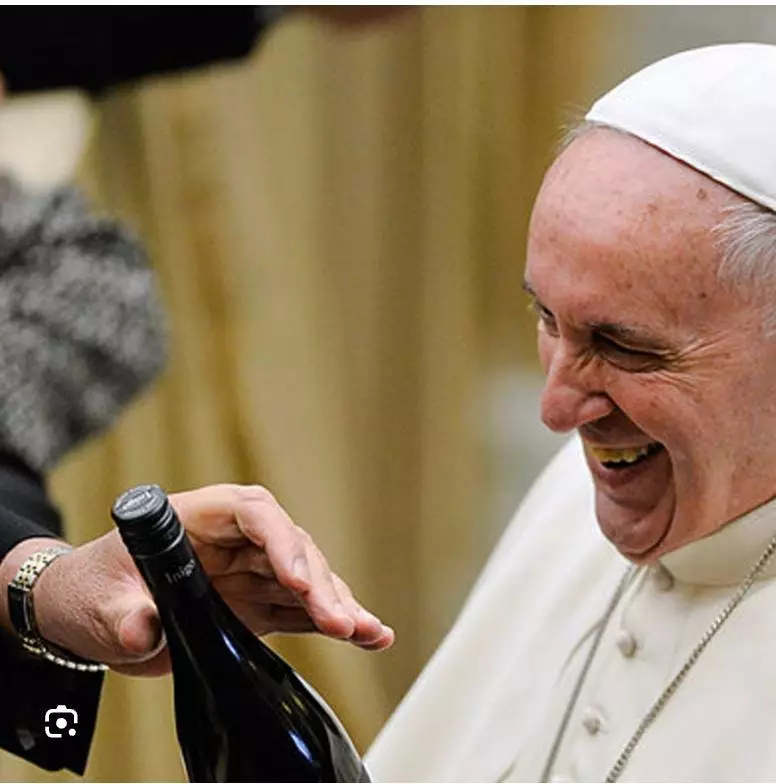The recent passing of Pope Francis has resonated profoundly, especially within the Italian wine industry that holds a special place in its heart for the pontiff. Though hailing from Argentina, Pope Francis’s Italian roots, particularly those tracing back to Asti—the lush heart of Piemonte’s wine-producing region—enhanced his connection to the country’s esteemed viticulture. In a memorable meeting with over 100 Italian wine producers, the pope didn’t shy away from acknowledging their significant contribution to both the economy and cultural heritage of Italy. His words, “yours is certainly a significant presence,” served not only as praise but as a recognition of the ethical and sustainable practices that these producers embody.
Pope Francis articulated a vision of wine production that transcends mere economic value; he spoke of it as an intertwined narrative of faith, stewardship, and respect for the environment. By emphasizing the importance of care for nature and healthy consumption patterns, he highlighted an evolving ethos in winemaking that is increasingly vital in today’s climate-conscious marketplace. This relationship between spirituality and oenology represents a powerful example of how tradition can align with modern consumer values, inviting winemakers to reflect on their practices while maintaining the rich legacy of wine in Italy.
Shifting Dynamics: The Influence of a New Papacy
In the wake of Pope Francis’s passing, speculation arises about how the election of a new pope might impact the longstanding relationship between the Vatican and the Spanish winery Heras Cordón, which has proudly held the title of the exclusive wine supplier to the Holy See since 2001. Known for producing a limited number of bottles each year, adorned with the papal insignia and uplifting mottos, the swapping of pontiffs might herald significant changes for this unique partnership. With Heras Cordón being the only winery in Spain that boasts a Vatican supplier certificate, the potential for influence on future papal preferences might open a new chapter in this venerable connection between faith and viniculture.
As this transition unfolds, it also stresses the significance of continuity and change in religious traditions tied to wine. More than just a beverage, wine in the Catholic Church symbolizes the blood of Christ during Eucharistic ceremonies, therefore continuing to forge an unbreakable bond between the sacred and secular. It will be intriguing to observe how the new pope perceives this intertwining legacy and whether it spurs new initiatives that honor this age-old relationship while promoting modern practices.
Generation Z: Navigating Economic Realities in Alcohol Consumption
A recent study titled “The Real Reasons Generation Z is Drinking Less Alcohol” sheds light on the real-world challenges this demographic grapples with, moving beyond conventional narratives centered around health consciousness or sober exploration. Conducted by Rabobank, the findings starkly reveal a fundamental truth: financial instability is at the forefront of this generation’s decision-making process about alcohol consumption. As Bourcard Nesin, the study’s analyst, points out, “Gen Z ain’t got no money,” thereby attributing their reduced spending on alcohol to lower income levels and the precarious job market that has characterized their formative years.
This scenario draws parallels with distinct cultural shifts where alcohol consumption is not an inherent rite of passage but rather a more calculated decision shaped by economic realities and digital engagement. With increased time spent on smartphones and social media platforms, Gen Z’s social environments have transformed, often favoring virtual interactions over in-person experiences. As they navigate adulthood, their relationship with alcohol, once seen as inextricably linked to socialization, is now cautious and significantly influenced by their economic landscape.
From Waste to Wonder: Innovative Sustainability in the Beverage Industry
In an exciting turn of events, the beverage industry is witnessing an innovative approach toward sustainability, exemplified by the strides made by Arda Biomaterials, a UK chemistry tech startup focusing on repurposing beer and whisky waste into a leather alternative. Securing over $5 million in funding, the company aims to revolutionize material production by seeking to eliminate plastic dependency through bio-based innovations.
This venture merges ecological mindfulness with entrepreneurial ingenuity—attributes crucial for today’s consumers and corporations alike. By co-locating production facilities near breweries, Arda Biomaterials is poised to transform leftover waste into valuable resources, fostering a more sustainable future within the industry. As major corporations like Anheuser-Busch InBev and Coca-Cola rally support, it underscores a significant trend among industry giants to embrace sustainability at the core of their business models.
The Changing Landscape of Wine and Wellness
The dialogue surrounding wine’s health benefits has experienced a paradigm shift, especially evident in a recent study published in the Canadian Journal of Cardiology. It suggests that while red wine has long been celebrated for its contributions to heart health, white wine and Champagne may hold similar protective benefits against sudden cardiac arrest. Conducted among a substantial demographic via the UK Biobank, the findings challenge preconceived notions about white wine’s health properties, advocating for a broader understanding of how various wine types can contribute positively to heart health when consumed with moderation.
As consumers become increasingly informed about their health choices, the wine industry must adapt by highlighting the significant advantages associated with diverse products. This collective movement toward health awareness not only benefits consumers but also prompts producers to elevate their practices, ensuring quality and responsibility across the board. With evolving science and consumer interests, the future of wine is becoming ever more intertwined with holistic health perspectives, beckoning a new era of opportunities and challenges.


Leave a Reply